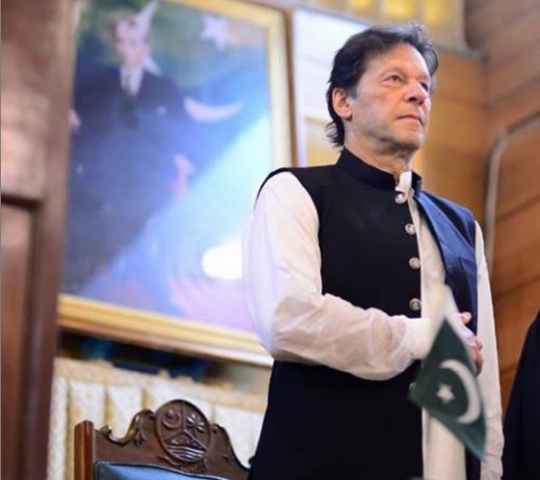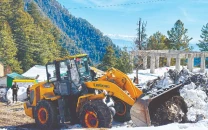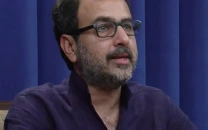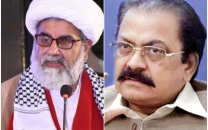PTI government’s struggles to overcome challenges
Making adjustments won't resolve issues because it's not only an issue of lack of vision but also lack of experience

Prime Minister Imran Khan. PHOTO: FILE
That was not to happen. As a matter of fact, the party had already ruled the province of Khyber-Pakhtunkhwa (K-P) for five years before taking control of the government at the Centre in 2018. If that government in K-P was a model for the rest of the country, the lessons can be easily drawn because the PTI government’s performance there was anything but exemplary. The party was plagued by the neurosis of a lack of experience, lack of knowledge, lack of competence and a lack of desire to learn and improve.
Fascinated by grandiose ideas and ignoring objective realities, the government in K-P, with a green signal from the top, designed and implemented one of the most ridiculous, ill-planned and wholly unjustified and unwarranted projects building a long flyover which was to pass through all the main roads to ease “traffic congestion”. The project would envisage running about a hundred buses on the elevated motorway known as the BRT or Bus Rapid Transit.
The project was to be completed in six months — by itself a preposterous assumption. It has taken more than three years and counting. Even when it is completed, the province and the nation would have paid more than Rs80 billion for running just a hundred buses on a route on which more than 10,000 public transport vehicles and rickshaws are plying already. And in the process, Peshawar’s infrastructure has been destroyed.
This is just one instance of a stupendous expenditure on the most ill-conceived work ever to be undertaken. In its current incarnation as a federal government, the PTI regime has gone about upsetting all calculations of exercising prudence, foresight and sanity. Never before in the history of the country has inflation gone as berserk as it has since the summer of last year. Never before in the country’s history has such a prodigious loan been obtained and the rupee lost its value so dramatically in such a short span of time.
This has made life miserable for Pakistanis. Well the government has an answer to all this: blame the past governments for all the ills and evils the country is now facing. The common man is not bothered. How has the new government, which had promised a change, conducted itself over the last 18 months? Has there been any improvement in any sector — be it education, health, industry or agriculture? Alas, there has been none!
Investment has come to a near standstill. Money is being transferred clandestinely to other countries. About 4,000 factories have closed down, and more than 1.2 million people have lost their jobs. The automobile industry is shutting down while the agriculture sector is in a severe crisis. Climate change issues pose many hazards as the glaciers are melting fast and the country is quickly growing water-stressed.
Media restrictions are at an all-time high. The civilian supremacy principle, never accepted or tolerated, is a thing of the past. There have been major reverses in the realm of foreign policy. Relations with India are at an all-time low with clouds of conflict hovering over the horizon while the lack of mutual trust continues to hamper growth of relations with Kabul.
This is not an indictment on the regime’s performance. This is an attempt to highlight the many setbacks in order to help in a course correction. But making adjustments will not resolve the problems because it is not only an issue of the lack of vision but also the lack of experience in addressing vital issues of governance. There does not appear to be any possibility of ministers critically evaluating their role and work, projecting into the future and formulating short- and long-term policies that would address the socio-economic problems of the vast multitudes of the 220 million people. To put it simply, it is beyond their comprehension or capability.
Instead there is such a huge emphasis on ‘politicking’ — as if that is a sure remedy for the problems the country encounters. Not a day passes when the ministers try to outwit each other in their scathing criticism of past regimes. Many have also served in those regimes, but in a volte face and with no pricks of conscience, they churn out propaganda blaming all the previous rulers for everything bad that has happened. Surprisingly, they receive compliments for their appetite for abusing past rulers. No one has ever paused to ask: have the ministers nothing more important to do than engaging in a relentless tirade of hurling abuses?
This drama is being played day in and day out. Where will the country be three years from now if this display of incompetence and utter ignorance of vital issues continues?
Pakistan certainly needs a new direction, a new strategy. The youth, the poor and the downtrodden deserve better. The common man is not excited about observing Kashmir Day — sympathising with their cause is fair and justified — but he is more worried about his falling income, his children’s education and healthcare and the agonies of poverty that he confronts on a daily basis. In Naya Pakistan, these are issues that should take centre stage.
Published in The Express Tribune, March 7th, 2020.
Like Opinion & Editorial on Facebook, follow @ETOpEd on Twitter to receive all updates on all our daily pieces.



















COMMENTS
Comments are moderated and generally will be posted if they are on-topic and not abusive.
For more information, please see our Comments FAQ